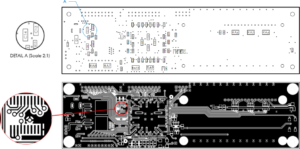Printed Wiring Board Replication Effect
In general, printed wiring board replication effects can be divided into two broad categories—those that most noticeably affect the static or dc operation of the circuit, and those that most noticeably affect dynamic or ac circuit operation, especially at high frequencies.
Another very broad area of printed wiring board replication is the topic of grounding. Grounding is a problem area in itself for all analog and mixed signal designs, and it can be said that simply implementing a replication printed wiring board based circuit doesn’t change the fact that proper techniques are required.
Fortunately, certain principles of quality grounding, namely the use of ground planes, are intrinsic to the printed wiring board environment. This factor is one of the more significant advantages to clone printed wiring board based analog designs, and appreciable discussion of this section is focused on this issue.
Some other aspects of grounding that must be managed include the control of spurious ground and signal return voltages that can degrade performance. These voltages can be due to external signal coupling, common currents, or simply excessive IR drops in ground conductors when printed wiring board replication. Proper conductor routing and sizing, as well as differential signal handling and ground isolation techniques enables control of such parasitic voltages.
One final area of grounding to be discussed is grounding appropriate for a mixed-signal, analog/digital environment. Indeed, the single issue of quality grounding can influence the entire layout philosophy of a high performance mixed signal PCB reverse engineering—as it well should.


